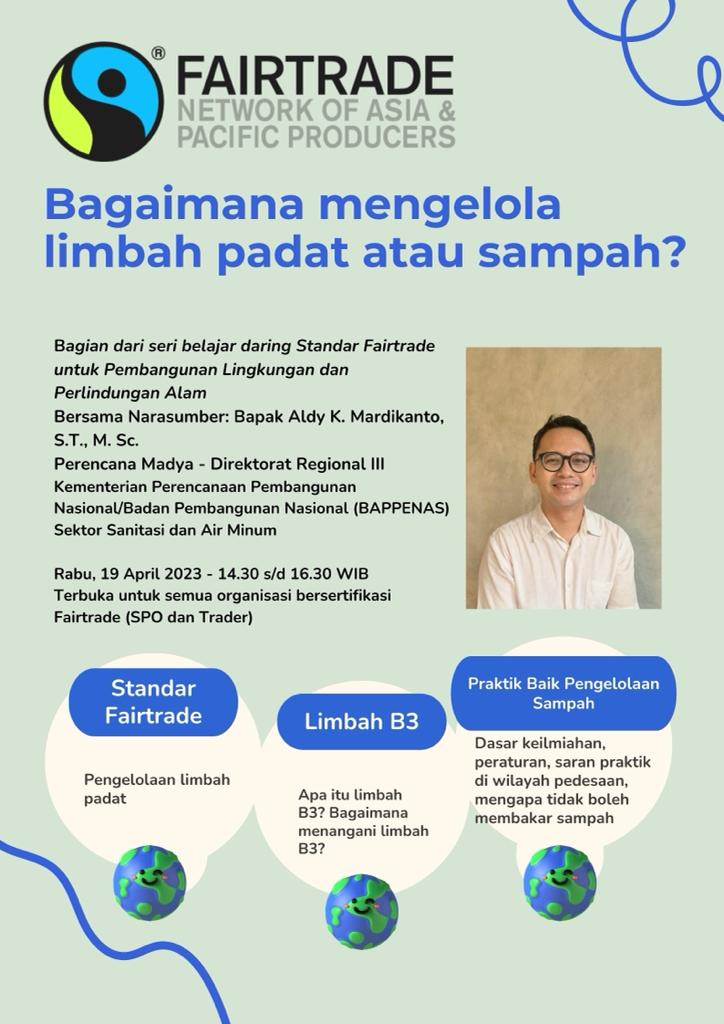Efficient waste management safeguards our planet’s health, turning discarded resources into opportunities for sustainability. Embracing responsible waste management fosters a cleaner, greener future for generations to come. An integral aspect of the Fairtrade Standard for environmental protection and development in production settings pertains to the regulation of solid and liquid waste management by producers. The Fairtrade Standard mandates that farmers possess adequate knowledge in handling and treating both solid and liquid waste, contributing to responsible waste management practices.
Under Fairtrade Standard 3.2.28, farmers and Fairtrade SPOs must properly handle and treat wastewater including that from processing facilities. They are also required to monitor its quality, understand acceptable parameters, and take corrective actions if necessary. Fairtrade Standard 3.2.29 mandates SPOs to raise awareness about domestic wastewater, health risks, prevention, and treatment methods. However, it has been found that many Small Producer Organizations (SPOs) have faced compliance challenges with Fairtrade’s requirement independently in Indonesia.
Recognizing this, Fairtrade NAPP has organized a 2-part webinar series to disseminate authorized knowledge and information about wastewater treatment as stated in Fairtrade Standard 3.2.28, 3.2.29 and other relevant knowledge and information that shall contribute to the comprehensive understanding of the issues at hand. This webinar series was attended by 40 representatives from 23 SPOs who are the key stakeholders in the Fairtrade Indonesian SPOs such as the delegations, the internal extensionists or any important figure members. These individuals are thus equipped to spread the gained awareness and knowledge to other members and provide required training about the domestic wastewater quality and initiate measures to process wastewater treatment in the production areas of the SPOs.
This webinar was facilitated by Mr Aldy K. Mardikanto, S.T., M. Sc., Associate planner at Regional Directorate III, Ministry of Development Planning, National / National Development Agency (BAPPENAS), Sanitation and drinking water sector, Indonesia. The primary objective of the seminar was to enhance knowledge and raise awareness among Fairtrade SPOs regarding Fairtrade Standard specifically focusing on wastewater management. The seminar addressed crucial topics including water, waste, and soil management, measures to prevent or reduce soil erosion, efficient water usage, safe wastewater management, and sustainable waste management practices like composting. This aimed to facilitate SPO compliance with these two development criteria standards.
The SPOs have acquired various knowledge regarding the national regulation on wastewater management, implement recommendations of wastewater management practices for domestic wastewater and central processing waste water and raised awareness of their members about domestic and central processing waste water and the practice of both waste water treatment
The participating SPOs have now acquired a diverse range of knowledge regarding the national regulations related to wastewater management. Equipped with this knowledge, the representatives are now better equipped to implement recommended waste water management practices for both generated during domestic and central processing, raise awareness among their fellow members, and promote sustainable practices within their production areas. Moreover, the SPOs have been actively planning to undertake initiatives to raise awareness among their members regarding the significance of wastewater treatment.
To facilitate further actions, the Indonesia Program Consultant will develop and distribute a comprehensive document detailing the awareness-raising and training activities on wastewater management for SPO members. This resource aims to support SPOs in effectively conducting their own training sessions. Additionally, the Consultant will provide a guideline aligning the Fairtrade standards with national regulations and expert technical recommendations, ensuring compliance, and promoting best practices within the SPOs.
In conclusion, the efforts made by Fairtrade NAPP and the participating SPOs in Indonesia demonstrate a commitment to responsible waste and wastewater management. Through webinars, knowledge-sharing, and awareness-raising activities, SPO members have gained valuable insights into wastewater treatment practices and national regulations. By fostering a culture of responsible waste and wastewater management, these initiatives contribute to a cleaner and more sustainable future for all.





